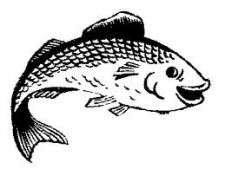 Your mother may have told you to eat fish to get smart because for years it s been touted as good for the brain. Now a new study, published in The American Journal of Medicine, suggests that eating fish might help protect the heart too.
Your mother may have told you to eat fish to get smart because for years it s been touted as good for the brain. Now a new study, published in The American Journal of Medicine, suggests that eating fish might help protect the heart too.
Ms. Sylvie S.L. Leung Yinko from McGill University and colleagues performed a meta-analysis of studies published from 1966 through June, 2013. They examined the results of 11 prospective cohort studies (studies that simply follow people as they pursue their usual lifestyles), and 9 case-control studies (studies that compared fish consumption between people with and without heart problems). In all, these studies included over 408,000 participants.
The researchers primary interest was the occurrence of acute coronary syndrome in individuals who had no diagnosis at the start of the study. Acute coronary syndrome is an umbrella term for situations in which the blood supply to the heart is blocked, such as heart attack or angina.
Their main finding was that consuming fish at least four times per week was associated with a 21 percent reduced risk of acute coronary syndrome. There was no difference in risk based on either gender or age. Further, the investigation found that every additional 100 gram serving of fish per week was associated with a five percent reduced risk.
In their discussion, the authors noted that the presence of omega-3 fatty acids in fish was thought to provide the heart benefits also seen in other trials. But they also stated that , while omega-3 fatty acids have been shown to favorably impact markers of cardiovascular diseases, whether they come from a complex food matrix such as fish, or are in an isolated form, could possibly explain why differences are observed between fish and omega-3 fatty acid supplements since supplements don t necessarily have the same beneficial effects. We have reported on this here.
ACSH s Dr. Ruth Kava had this to say: This study had some weaknesses, including that the intake data were self-reported by participants who complete food frequency questionnaires, as well as the fact that the studies included were of an observational nature. However, if the results are replicated by an independent group, it underlines the importance of obtaining important nutrients from foods rather than supplements.


